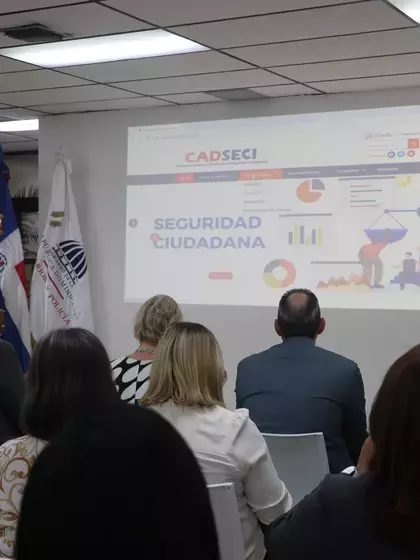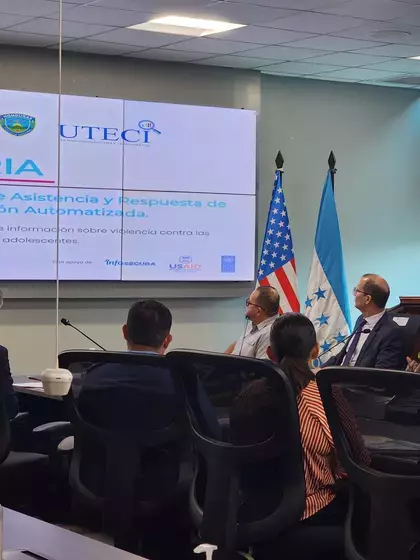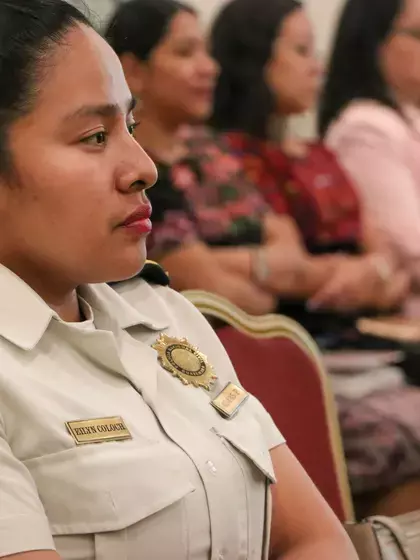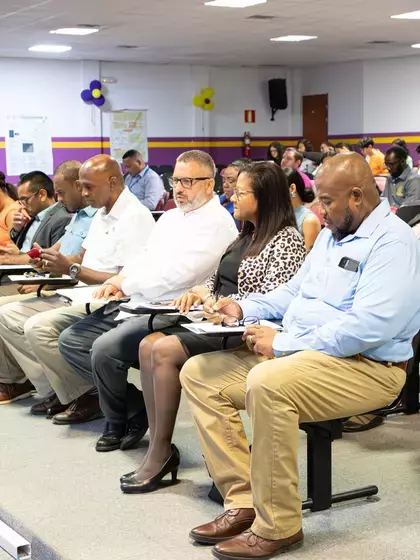Violence Prevention and Reporting Campaign in the Santo Domingo Metropolitan Area
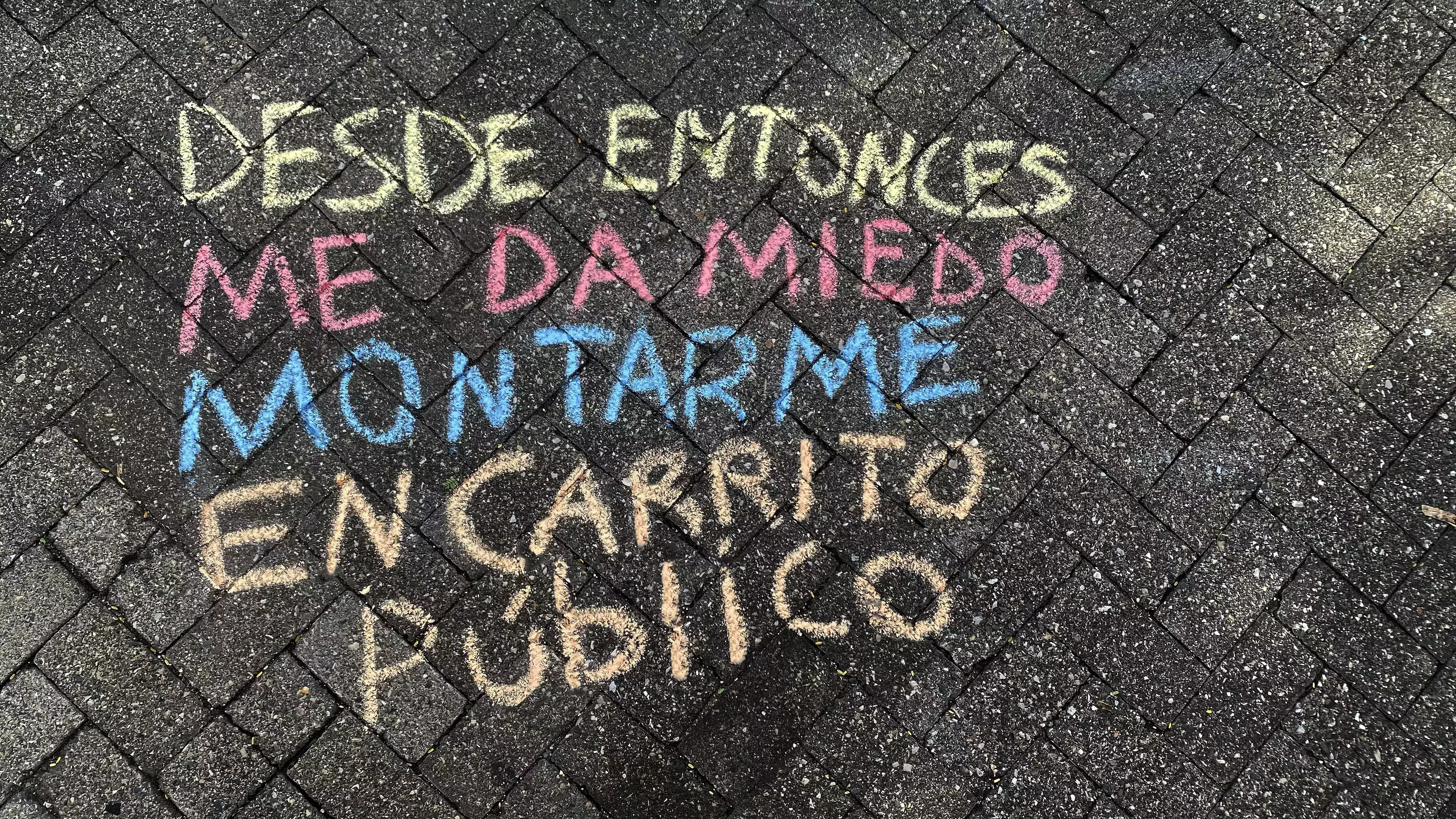
Maria, Ana, Juana and Altagracia, four friends living in Santo Domingo, the capital of the Dominican Republic, whose daily lives are not the same as their male brothers’, their male partners’ or even their male children’s. Juana, Maria and Altagracia have experienced some type of violence during their lives. Juana and Maria experienced it in their own communities. None of them reported the incidents.
Maria stopped going to the gym. She had to take a subway to get there and she got fed up with the leering glares and unwanted brushing up against her sports clothes. Ana used to take long walks down Mirador Sur. Never again. Not since she was mugged. Altagracia hardly leaves home for fear of what might happen to her.
This situation, although fictitious, is not unreal. Violence against Women is a very serious problem in the Dominican Republic. Data in the National Statistical Office’s Experimental Survey on the Situation of Women (ENESIM 2018) shows that more than two in three women around the country have experienced some form of violence in their lives An alarming 39.2 per cent of these women have experienced violence in the community and more disquieting is that fewer than five per cent of them have filed a formal report.
In addition, close to 50 per cent of women state they have stopped at least one activity for fear of crime. For a decade this figure has decreased among men, but it has increased in the case of women. In fact, up to 25.8 per cent of women report they no longer leave their homes out of fear, as compared to 18.4 per cent of men.
With this data, and in partnership with the Ministry of Police, the Ministry of Women’s Affairs and the National Statistics Office, the UNDP and USAID through the InfoSegura project have carried out two studies to look into violence against women in the workplace and the community. These studies go into detail on the conceptualization of citizen security with a gender lens.
The results point to the need to promote reporting of violence against women and girls, and raising social awareness of the importance of recognizing that harassment in public is a form of violence. It is also crucial for this kind of behaviour to become unacceptable, take measures to prevent it and dismantle gender stereotypes that perpetuate normalizing gender-based violence.
Prevention and Reporting Campaign
Achieving this has brought together the UNDP InfoSegura project in partnership with USAID and in collaboration with the National Police Specialized Directorate for Attention to Women and Domestic Violence (DEAMVI) in an innovative campaign to prevent and report violence and harassment against women, adolescents and female minors on mass transportation in Santo Domingo.
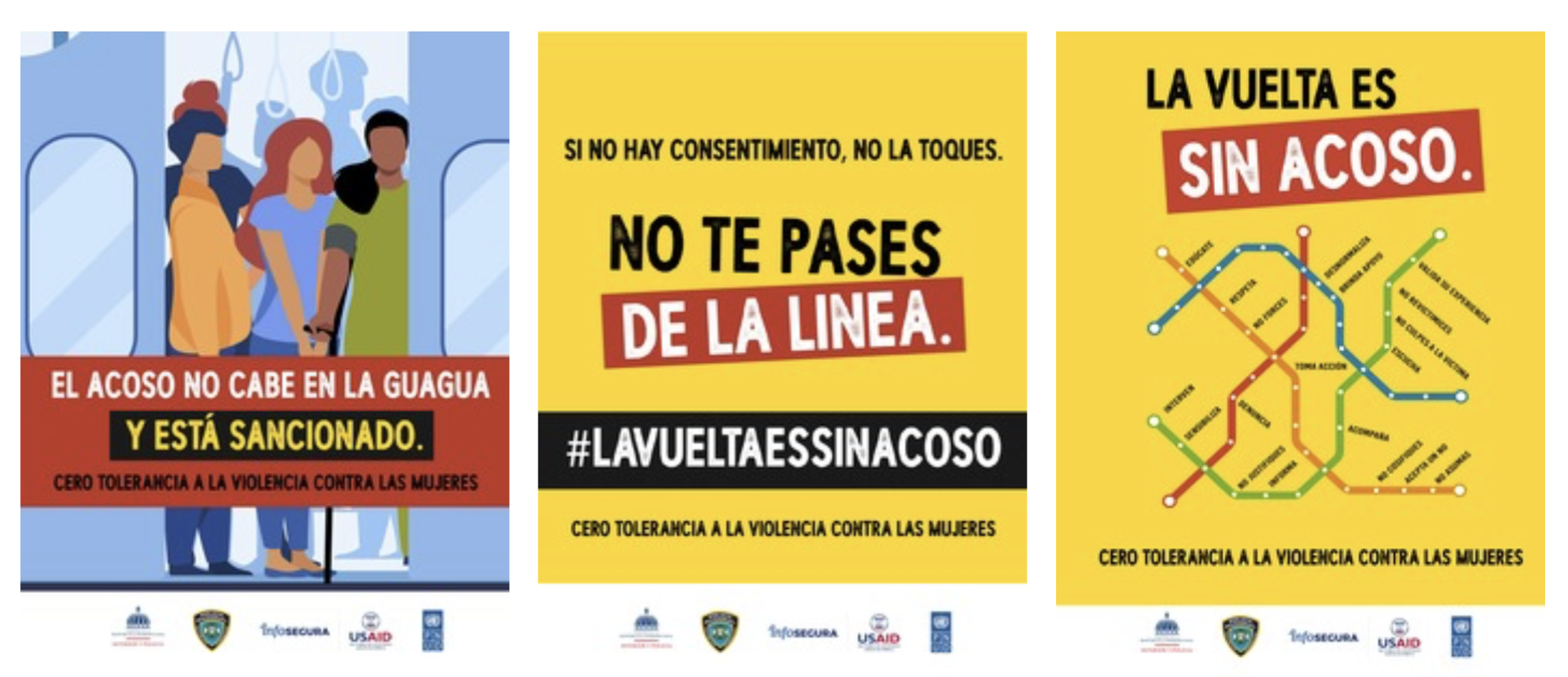
The campaign promotes the idea that harassment on mass transit is an act of violence and has serious consequences for female adults, adolescents and minors. Messages also raise public transport user awareness of the effects of street harassment. It works to de-naturalize these actions, promoting the de-construction of attitudes, stereotypes and traditional gender roles, favouring a positive, egalitarian and respectful masculinity. It encourages victims and witnesses to report and stand up to this type of violence. It also seeks to sensitize metro security personnel to take action in cases of harassment.
Using videos, performances and infographics, the campaign will try to transmit to the harassers, the victims and other transport riders who may be witnesses to violent attitudes and even metro employees, messages such as, “I'll pass on this ride,” “Don't cross the line”, “I prefer to take a longer route for fear that it will happen again”, “Harassment doesn't fit on the bus and is sanctioned”, “I reported what he did to me in the subway and they said I was exaggerating.”
The ultimate objective is for women like Maria, Ana, Juana and Altagracia to live free from fear, from aggression, from leering eyes and never again have to change the way they live.
UNDP InfoSegura started in 2014 in partnership with USAID in order to provide technical support to institutions in charge of designing and implementing evidence-based policies in matters of security, coexistence and social cohesion. The aim is to build capacity to work the information management cycle with a multidimensional approach that is gender responsive, with an emphasis on the Sustainable Development Goals (SDG), and this way contribute to reducing the impact of violence and insecurity.

